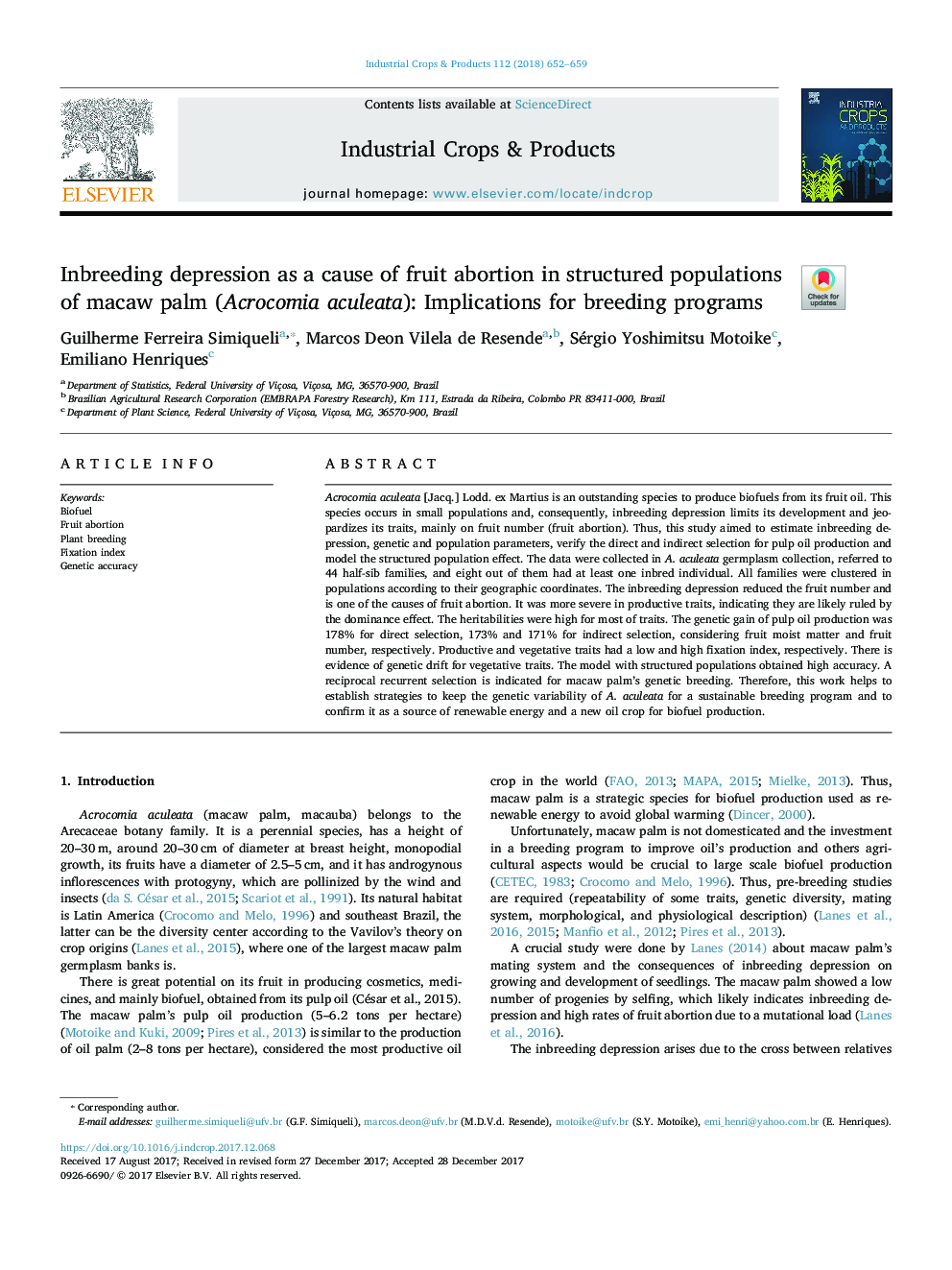| Article ID | Journal | Published Year | Pages | File Type |
|---|---|---|---|---|
| 8880724 | Industrial Crops and Products | 2018 | 8 Pages |
Abstract
Acrocomia aculeata [Jacq.] Lodd. ex Martius is an outstanding species to produce biofuels from its fruit oil. This species occurs in small populations and, consequently, inbreeding depression limits its development and jeopardizes its traits, mainly on fruit number (fruit abortion). Thus, this study aimed to estimate inbreeding depression, genetic and population parameters, verify the direct and indirect selection for pulp oil production and model the structured population effect. The data were collected in A. aculeata germplasm collection, referred to 44 half-sib families, and eight out of them had at least one inbred individual. All families were clustered in populations according to their geographic coordinates. The inbreeding depression reduced the fruit number and is one of the causes of fruit abortion. It was more severe in productive traits, indicating they are likely ruled by the dominance effect. The heritabilities were high for most of traits. The genetic gain of pulp oil production was 178% for direct selection, 173% and 171% for indirect selection, considering fruit moist matter and fruit number, respectively. Productive and vegetative traits had a low and high fixation index, respectively. There is evidence of genetic drift for vegetative traits. The model with structured populations obtained high accuracy. A reciprocal recurrent selection is indicated for macaw palm's genetic breeding. Therefore, this work helps to establish strategies to keep the genetic variability of A. aculeata for a sustainable breeding program and to confirm it as a source of renewable energy and a new oil crop for biofuel production.
Related Topics
Life Sciences
Agricultural and Biological Sciences
Agronomy and Crop Science
Authors
Guilherme Ferreira Simiqueli, Marcos Deon Vilela de Resende, Sérgio Yoshimitsu Motoike, Emiliano Henriques,
